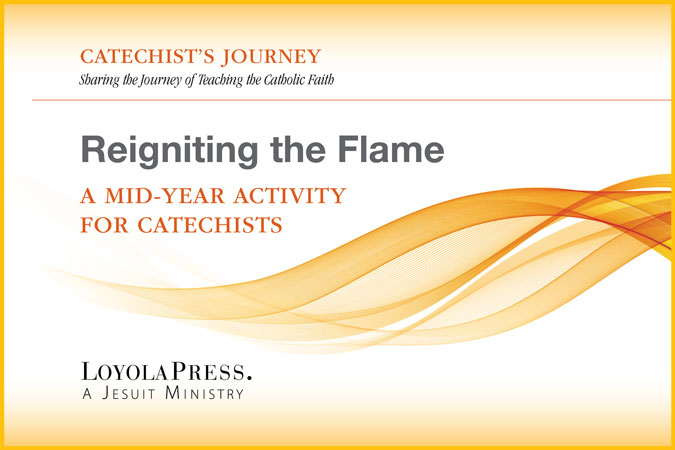
Everything we do in parish life has a catechetical aspect to it. In other words, the way we do things in the parish teaches and forms us in our faith. With that in mind, an important venue for adult faith formation is parish business meetings. How do we conduct business when we gather adults together for parish pastoral council, parish finance team, school board or religious education advisory board, etc.?
From my experience, it’s safe to say that these meetings tend to follow parliamentary procedures: in between bookend prayers, an agenda is followed, debates take place, motions are made and seconded, and majority-rule votes are taken. Unfortunately, parliamentary procedures tend to favor those who are more assertive and vocal while discriminating against those who are more introspective. Likewise, parliamentary procedure is a secular model and thus insufficient and even detrimental when used within a church model. Most importantly, parliamentary procedures leave little room for the most important Person at any parish meeting: the Holy Spirit. Important decisions about directions for the parish are not to be reached by following parliamentary procedures. Instead, we need to rely on a format that can best be described as “worshipful work”—a format that can help to form those who participate in such an experience.
The overall thrust of worshipful work is to transform any group, club, or leadership team into a spiritual community. Instead of following parliamentary procedures, worshipful work models itself after the gatherings of the early Christian community as described in the Acts of the Apostles. There the Holy Spirit took center stage. Worshipful work sessions emphasize and include the following:
- focus on the faith community’s heritage and mission
- reading of Scripture for guidance and inspiration
- theological reflection
- decisions reached by discernment and consensus, not debate and majority-rule votes
- moments of silence
- singing and offering praise
- intercessory prayer
- spirituality, not politics
- spiritual leaders, not politicians
- the People of God instead of a club, organization, or board
- formation of new members
- chronicling, not recording, minutes
- responding to God’s call over taking roll-call
- exchanging Christ’s peace
- calling forth leaders over electing officers
- discernment of gifts over campaigning for office
Most importantly, in worshipful work, prayer is no longer relegated to the beginning and end of a meeting as perfunctory bookend prayers. Rather, the entire session is permeated by a climate of prayer. The entire gathering is seen, not as a way to complete tasks, but as an opportunity to worship God and align ourselves to his will.
What might a worshipful work session look like? Here’s a sample outline (rather than agenda) for a parish pastoral council meeting using a worshipful work approach.
- Call to prayer—Those gathered sing a hymn, invoke the Holy Spirit, read from Scripture, participate in reflection/sharing, and share intercessions.
- Response to God’s call—While a hymn is sung, those present are asked to come forward prayerfully and sign their names in a ledger as a way of indicating their presence and desire to do God’s will.
- Reading of the chronicle—The chronicler for the last session reads his or her account of how the Holy Spirit guided the last session. The chronicle is then passed on to the next person responsible for chronicling the proceedings with an emphasis on the movement of the Holy Spirit.
- Furthering the mission—The “business” at hand is conducted. If major decisions need to be made, they are done through a process of discernment and consensus.
- The issue is clearly stated and clarified.
- In discussion, everybody has an opportunity to influence the decision.
- The facilitator tests for consensus.
- Prayerful reflection and silence enable the group to ask that God’s will be done and that the final decision(s) further the Kingdom.
- Church teaching may need to be consulted.
- Discussion continues until any areas of disagreement are reduced or eliminated.
- The process continues until consensus is reached, meaning that the final decision is one that everybody can abide by, even if not fully in agreement.
- Thanksgiving—The group gives thanks for the guidance of the Holy Spirit, either through a litany of thanksgiving or a hymn of thanksgiving.
- Sign of Peace—Before leaving, members offer to one another a sign of Christ’s peace.
How we conduct our business goes a long way in forming those seated at the table. Worshipful work can help to ensure that our gatherings are not bogged down by politics or manipulated by people with political agendas capable of hijacking parliamentary procedures. Rather, it can help to form a community of faith that is guided solely by the Holy Spirit and in which the only agenda is God’s mission to bring about the Kingdom.




Beautiful Joe, just beautiful… Thanks for this.
Thanks Fran!